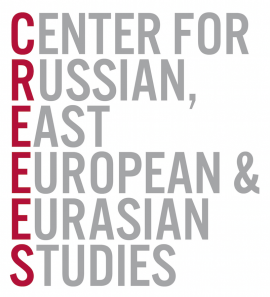Visiting Scholars
Wim Coudenys
Home Institution: University of Leuven
Project Title: The Belgian Connection: A.M. Garting and European-Russian Intelligence Collaboration, 1893-1917
Fellowship: Fulbright and Flemish Fund for Scientific Research
Dates in Residence:
August 2017 to November 2017
Wim Coudenys is Professor of Russian and European (Cultural) History at the University of Leuven (Belgium). He specializes in Belgian/European–Russian relations, Russian emigration history, Russian historiography, imagology and translation. He is the author of 4 books, among them a biography of the prolific Russian writer Ivan Nazhivin (1999, in Dutch), a history of the Russian emigration in Belgium (Dutch edition 2004, Russian edition 2017 or 2018), an ‘alternative’ history of Russia (2014, in Dutch) and, most recently, a biography of Andrei Prezhbiano, the Russian military agent to Belgium during WWI (2017). Professor Coudenys is also a keen photographer and published, with Emmanuel Waegemans, a Journey from Saint-Petersburg to Moscow (Dutch 2011 & 2013, Russian 2013). As a Visiting Scholar at Stanford, Wim Coudenys will be doing research on Belgian-Russian intelligence collaboration on the eve of the First World War. Wim Coudenys is member of the Study Group on the Russian Revolution (UK), Chairman of the Association of Belgian Slavists and a board member of the International Committee of Slavists.
Andrei Gorzo
Home Institution: National University of Theatre and Film “I. L. Caragiale”
Project Title: On the Aesthetics and Politics of Found Footage Films
Fellowship: Fulbright
Dates in Residence:
August 2017 to January 2018
Dr. Andrei Gorzo is assistant professor of Film Studies at the National University of Theatre and Film “I. L. Caragiale” in Bucharest. His research interests include: the aesthetics and politics of the post-2000 New Romanian Cinema; the cinema of the Cold War; the work of Hungarian filmmaker Miklós Jancsó; and the history of found-footage filmmaking. He is the author of three books.
Jasmina Husanović
Home Institution: University of Tuzla, Bosnia and Herzegovina
Project Title: Re-Configuring the Trauma Market: Cultural Interventions into Conflict and Social Justice
Fellowship: Fulbright
Dates in Residence:
September 2017 to June 2018
Jasmina Husanović (Husanovic-Pehar) is an Associate Professor at the Faculty of Philosophy, University of Tuzla, Bosnia and Herzegovina, and chair of Cultural Studies. She earned her PhD in 2003 at the Department of International Politics, University of Wales, Aberystwyth, UK, with a thesis entitled, “Recasting Political Community and Emancipatory Politics: Reflections on Bosnia.” Her research interests are in cultural and political theory and praxis dealing with the politics of witnessing, equality and solidarity, governance of life and culture of trauma, as well as emancipatory politics with a focus on intersecting public spaces of cultural and knowledge production (critical pedagogies in art, education and activism). She has published widely on these themes in the post-Yugoslav region and internationally, including a monograph, two co-edited volumes and numerous articles in scholarly journals and edited volumes. She is currently engaged in various teaching, publishing and research initiatives and platforms regionally and internationally concerning the issues of memory, trauma, violence, solidarity and social justice.
Anna A. Mazurkiewicz
Home Institution: University of Gdansk, Poland
Project Title: The National Committee for a Free… - American uses of political exiles during the Cold War
Fellowship: Fulbright
Dates in Residence:
August 2017 to January 2018
Anna Mazurkiewicz is an Associate Professor at the Faculty of History, University of Gdansk and the current President of the Polish American Historical Association (2017-2018). She has published three books: on the American responses to elections of 1947 and 1989 in Poland, and on the role of the political exiles from East Central Europe in American Cold War politics (1948-1954). Her scholarly interests are: the United States after World War II; U.S.-Polish diplomatic relations; media system in the United States; U.S. policy towards the countries of East Central Europe; political activity of refugees from East Central Europe in the United States after World War II; political emigration from East Central Europe in 1945-1989. Mazurkiewicz was a Visiting Scholar at the University of Notre Dame, Central European University (Budapest), Kosciuszko Foundation Scholar at the University of Minnesota and at the State University of New York at Buffalo.
David L. Ransel (Scholar in Residence)
Home Institution: Indiana University, Robert F. Byrnes Professor Emeritus
Dates in Residence:
September 2016 to September 2019
David L. Ransel is the Robert F. Byrnes Professor Emeritus at Indiana University. He has published nine books, including four monographs, and several dozen articles on topics in Russian political, social and oral history. Ransel served as editor-in-chief of the Slavic Review 1980-85 and editor-in-chief of the American Historical Review 1985-95. From 1995 to 2009 he was director of the Russian and East European Institute at Indiana University. He served as president of the Association for Slavic, East European, and Eurasian Studies in 2004. He is currently at work on an oral history study of civic identity and social attachments of the last Soviet and first post-Soviet generations of workers in the industrial suburbs of Moscow.
Inga Zaksauskiene
Home Institution: University of Vilnius, Lithuania
Project Title: Mission Radio Hope: Western Radio Broadcasts to the Soviet Baltic Republics
Fellowship: Fulbright
Dates in Residence:
September 2017 to March 2018
Inga Zaksauskiene is assistant professor at the Faculty of History, University of Vilnius. Her scholarly interests are: U.S.-Lithuanian diplomatic relations during the Cold War; the media system in the United States and radio broadcasting to the Soviet Baltic States; U.S. policy towards the Baltic countries; audience of Western radio broadcasts; KGB activities in suppressing Western broadcasts to Baltic States. She has also published a book on Soviet army relations with local authorities during the Cold War.











